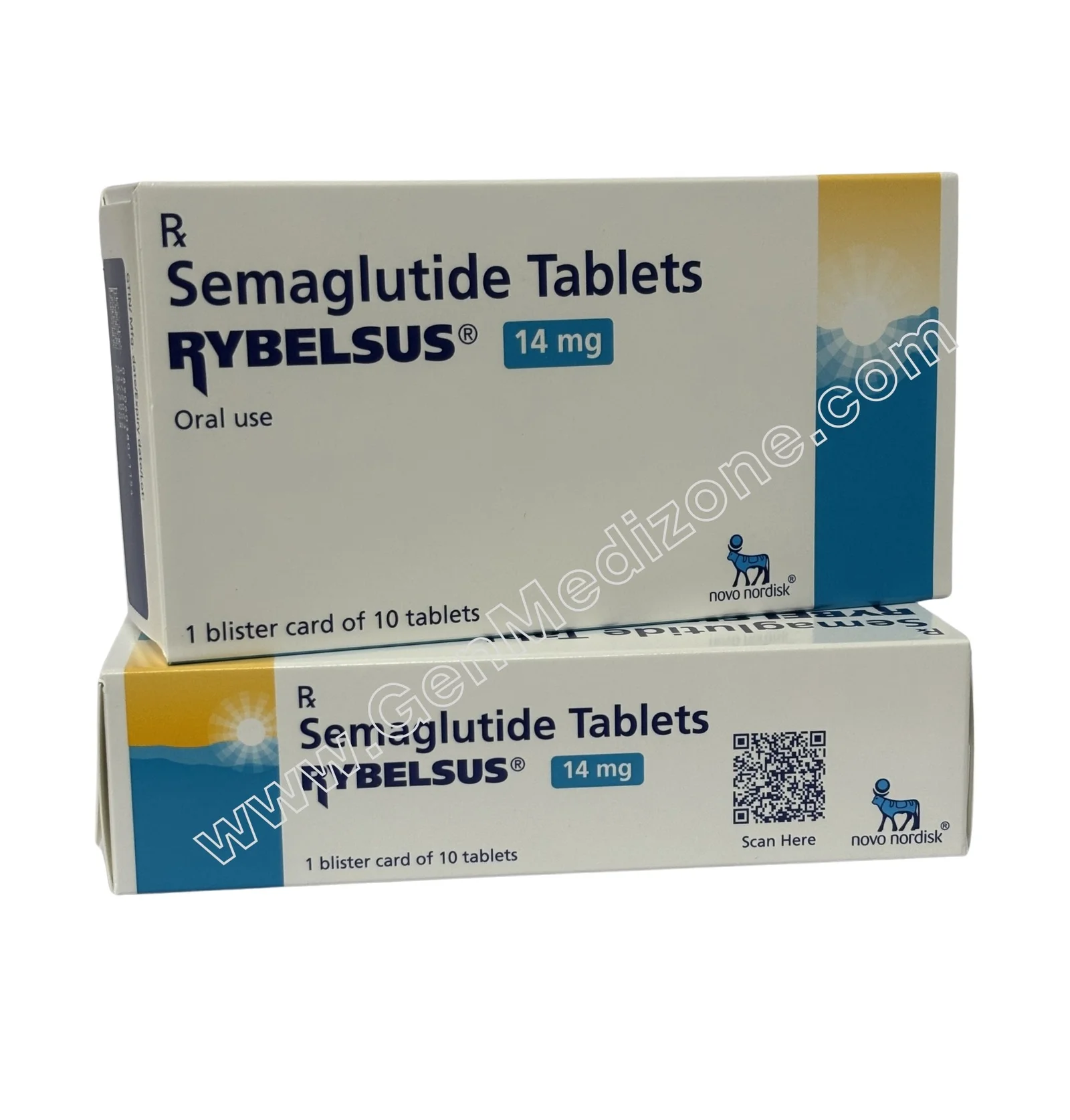
Semaglutide 14mg: A Game-Changer for Metabolic Health
What is Semaglutide?
Semaglutide 14mg is an innovative medication that has garnered significant attention in recent years for its effectiveness in treating type 2 diabetes and aiding in weight management. Originally developed as an injectable solution, semaglutide is now available in tablet form, offering a more convenient option for patients who prefer oral medication over injections. Marketed under brand names like Ozempic, Rybelsus, and Wegovy, semaglutide works by mimicking the actions of the natural hormone GLP-1 (glucagon-like peptide-1), which helps regulate blood sugar levels and manage appetite.
How Semaglutide Tablets Work
Semaglutide tablets belong to a class of drugs known as GLP-1 receptor agonists. By activating GLP-1 receptors in the body, these tablets help to:
- Stimulate insulin production when blood glucose levels are high.
- Suppress glucagon secretion, which reduces the amount of glucose released by the liver.
- Slow gastric emptying, leading to a feeling of fullness for a longer duration, which can assist with weight loss.
This unique combination of effects makes semaglutide particularly effective for individuals with type 2 diabetes and those who struggle with obesity. By controlling blood sugar and promoting weight loss, semaglutide tablets can also help reduce the risk of cardiovascular complications often associated with type 2 diabetes.
Benefits of Semaglutide Tablets
1. Effective Glycemic Control
One of the primary benefits of semaglutide tablets is their ability to offer better glycemic control for patients with type 2 diabetes. Unlike other treatments, semaglutide not only lowers blood sugar levels but also helps maintain them within a healthy range over time. Studies have shown that semaglutide tablets can reduce HbA1c levels (a marker for long-term blood glucose) by up to 1.5-2%, making them one of the most potent oral antidiabetic medications on the market.
2. Promotes Weight Loss
Semaglutide tablets are also effective in weight management. Clinical trials have demonstrated that semaglutide can lead to an average weight loss of 5-10% of body weight over a 6-12 month period, depending on the dosage. This makes semaglutide an appealing option for patients with obesity or those at risk of developing type 2 diabetes due to excess weight. In fact, Wegovy, a higher-dose version of semaglutide, has been approved specifically for the treatment of chronic obesity.
3. Cardiovascular Benefits
Patients with type 2 diabetes are at higher risk of developing cardiovascular diseases such as heart attacks, strokes, and heart failure. Semaglutide tablets have been shown to reduce the risk of these conditions. Clinical studies indicate that semaglutide can lower the incidence of major adverse cardiovascular events (MACE) by approximately 26%, making it a valuable medication for patients with both diabetes and heart disease.
4. Improved Quality of Life
The convenience of Jardiance 25 mg cannot be overstated. Patients who previously relied on injectable forms of semaglutide now have the option of taking a once-daily tablet, which significantly improves their quality of life. The oral formulation offers flexibility and eliminates the need for needles, which can be a barrier for some patients.
Who Should Use Semaglutide Tablets?
Semaglutide tablets are generally prescribed for individuals with type 2 diabetes who have not achieved adequate glycemic control through diet, exercise, or other oral medications. It is also recommended for patients struggling with obesity, especially if they have comorbid conditions such as hypertension or cardiovascular disease. Semaglutide may be particularly beneficial for those at risk of heart disease due to its ability to lower cardiovascular risks.
Eligibility Criteria
- Adults with type 2 diabetes who require additional glycemic control.
- Individuals with obesity (BMI ≥ 30) or overweight individuals (BMI ≥ 27) with at least one weight-related condition such as hypertension or dyslipidemia.
- Patients who prefer oral medication to injectable treatments.
Who Should Avoid Semaglutide?
Semaglutide is not recommended for individuals with type 1 diabetes, a history of pancreatitis, or those with a personal or family history of medullary thyroid carcinoma. It is also contraindicated in patients with multiple endocrine neoplasia syndrome type 2 (MEN2).
Dosage and Administration of Semaglutide Tablets
Semaglutide tablets are taken once daily, ideally on an empty stomach, with water. The recommended starting dose is usually 3 mg per day for the first month. This allows the body to adjust to the medication and minimizes the risk of side effects. After the initial period, the dose is typically increased to 7 mg, and if further glycemic control is needed, it may be increased again to 14 mg.
It is crucial to follow the prescribed dosage and avoid taking more than the recommended amount, as this could lead to adverse effects or increased risk of complications.
Side Effects of Semaglutide Tablets
Like any medication, semaglutide tablets come with potential side effects. Most of these are mild and tend to subside as the body adjusts to the medication. Common side effects include:
- Nausea
- Vomiting
- Diarrhea
- Abdominal pain
- Constipation
These gastrointestinal symptoms are usually temporary and can be minimized by starting with a lower dose and gradually increasing it. However, more serious side effects, although rare, have been reported. These include:
- Pancreatitis
- Hypoglycemia (especially when used in combination with other diabetic medications)
- Kidney problems
- Allergic reactions
Patients experiencing severe symptoms should seek medical attention immediately.
Interactions with Other Medications
Semaglutide tablets may interact with other medications, which can either enhance or reduce their efficacy. For example, combining semaglutide with insulin or other antidiabetic medications may increase the risk of hypoglycemia. It is important to inform your healthcare provider about all the medications and supplements you are taking to avoid any potential interactions.
The Future of Semaglutide Tablets
With its proven effectiveness in managing both blood sugar levels and weight, semaglutide is positioned to become one of the most significant developments in diabetes and obesity treatment. Researchers are currently exploring the potential for semaglutide in treating other conditions, including non-alcoholic fatty liver disease (NAFLD) and Polycystic Ovary Syndrome (PCOS), as well as its broader applications in cardiovascular disease prevention.
Conclusion
Semaglutide tablets have revolutionized the treatment of type 2 diabetes and obesity. Offering effective glycemic control, significant weight loss, and cardiovascular benefits, these tablets are a powerful tool in managing chronic conditions. With their convenience and proven efficacy, semaglutide tablets are set to become a first-line treatment for many patients.


